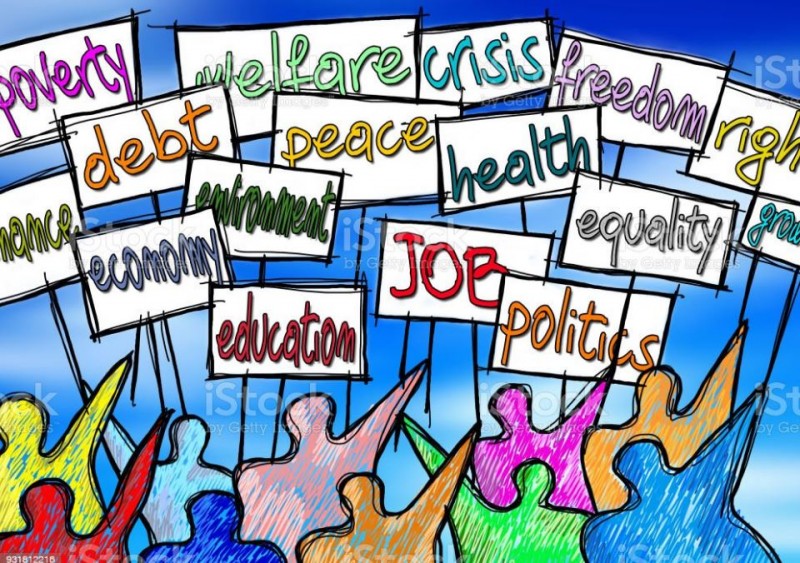
Social media has revolutionized the way we connect and communicate with others. With just a few clicks, we can share our thoughts, experiences, and even our deepest emotions. While social media platforms offer numerous benefits, it is important to acknowledge the impact they can have on our mental health. In this article, we will explore the influence of social media on mental health and discuss the various issues associated with its use.
Impact on self-esteem and body image
Social media often presents an idealized version of reality, filled with carefully curated images and posts. This constant exposure to picture-perfect lifestyles can lead to feelings of inadequacy and low self-esteem. As individuals compare themselves to others, they may develop negative body image issues and engage in unhealthy behaviors to attain unrealistic standards of beauty.
Relationship challenges
While social media helps us stay connected, it can also create challenges in our relationships. Excessive time spent on social media can lead to neglect of face-to-face interactions and reduced intimacy. Additionally, the ease of communication through social media platforms may result in misinterpretation and misunderstandings, causing conflicts and strained relationships.
Fear of missing out (FOMO)
The fear of missing out, or FOMO, is a common phenomenon experienced by social media users. Seeing others' exciting experiences and accomplishments can evoke feelings of jealousy and anxiety, as individuals feel left out or that their own lives are inadequate. Constant exposure to others' highlight reels can intensify these feelings and contribute to a sense of dissatisfaction with one's own life.
Cyberbullying and Online Harassment
One of the darker sides of social media is the prevalence of cyberbullying and online harassment. The anonymity provided by the internet allows individuals to engage in harmful behaviors without facing immediate consequences. This can have severe implications on mental health, leading to depression, anxiety, and even suicidal ideation in extreme cases. It is crucial to address and combat cyberbullying to create a safer online environment for all users.
Addiction and Dependence
Social media platforms are designed to be addictive, with features like endless scrolling and notifications that keep users engaged for extended periods. This addictive nature can lead to social media dependence, where individuals feel compelled to constantly check their profiles and stay connected online. Excessive usage can have detrimental effects on mental health, including increased anxiety, decreased productivity, and feelings of isolation.
Comparison and Depression
Social media fosters an environment of comparison, where individuals constantly compare their lives to others. This can contribute to feelings of inadequacy, envy, and even depression. People often showcase only the highlights of their lives on social media, creating a distorted perception of reality. It is important to remember that what we see on social media is not a complete representation of someone's life.
Social Media and Anxiety
The constant exposure to social media can trigger or worsen anxiety symptoms. The pressure to maintain an online presence, the fear of judgment, and the anticipation of social validation can all contribute to heightened anxiety levels. Additionally, the continuous stream of information and news on social media platforms can be overwhelming, leading to feelings of stress and anxiety.
Sleep Disruption
The use of social media before bedtime can disrupt sleep patterns. The blue light emitted by screens can interfere with the production of melatonin, a hormone that regulates sleep. Engaging in social media activities late at night can also stimulate the mind, making it difficult to relax and fall asleep. Poor sleep quality can have a profound impact on mental well-being, contributing to mood disorders and decreased cognitive function.
The Role of Social Media in Seeking Validation
Social media platforms often serve as outlets for seeking validation and approval from others. Likes, comments, and followers can become measures of self-worth, leading individuals to rely on external validation for their self-esteem. This dependence on social media for validation can have negative consequences on mental health, as self-esteem becomes contingent upon online recognition.
Strategies for Promoting Mental Well-being on Social Media
To mitigate the negative impact of social media on mental health, several strategies can be employed:
Limiting screen time: Set boundaries and allocate specific times for social media usage to prevent excessive exposure.
Curating a positive online environment: Unfollow accounts that promote unrealistic standards or negatively affect mental well-being. Follow accounts that inspire and promote positivity.
Seeking support from online communities: Engage in online communities that foster understanding, empathy, and support. Connecting with like-minded individuals can provide a sense of belonging and reduce feelings of isolation.
Conclusion
Social media has undoubtedly transformed the way we interact, but it also poses challenges to our mental health. From self-esteem issues to cyberbullying and addiction, the impact of social media on mental well-being should not be overlooked. By understanding these issues and implementing strategies for maintaining a healthy relationship with social media, we can strive for a more balanced and positive online experience.
Finance: Smart Money Management Tips for Young Professionals
Psychology: Understanding and Managing Stress in the Modern World